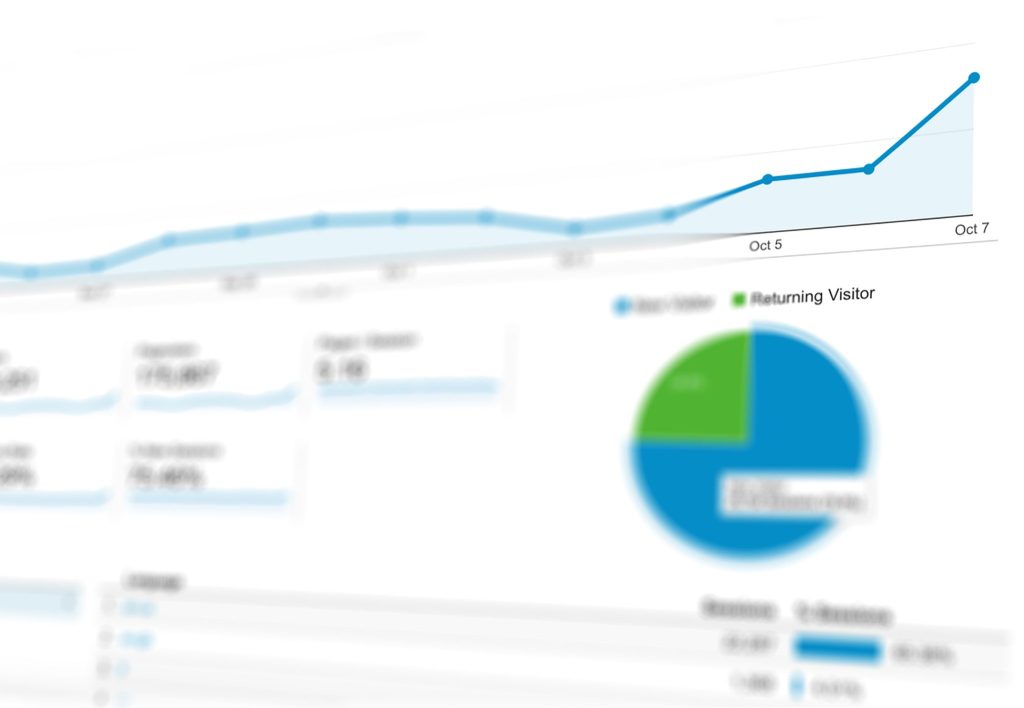Ever heard the saying, “Change is the only constant”? Well, this rings true for many things, and digital marketing and web analytics are no exceptions. The emergence of Google Analytics 4 (GA4) has led many to ponder whether it’s set to replace its predecessor, Universal Analytics (UA).
In this article, we explore the differences between UA vs GA4, and why understanding GA4 is crucial for anyone looking to stay ahead in the rapidly evolving landscape of web analytics.
Is GA4 better than Universal Analytics?
Google made the strategic decision to shift away from Universal Analytics by introducing GA4. This transition is a move towards a more advanced and versatile platform. Despite the criticisms some may have toward GA4, it’s important to recognise the significant improvements it offers. These improvements make it a solid choice for the long term.
Differences between GA4 and UA:
- Different measurement model
- Event-based data
- No more bounce rate: Bounce rate vs. Engagement rate
- No more category, action, label
GA4 vs Universal Analytics – What’s the difference between the two? We’ve highlighted a few key differences to consider.
1. Different measurement model
One of the fundamental distinctions between GA4 and UA lies in their measurement models. UA measures ‘hits,’ which represent various types of user interactions, such as page views or email clicks. In GA4, all these interactions are classified as ‘events,’ eliminating the need to distinguish between different hit types. This simplification streamlines the tracking process, making it more intuitive and adaptable.
2. Event-based data
GA4 has an event-based data model, as opposed to UA’s session-based approach. In UA, a session groups together interactions that take place during a single visit, using cookies to bind them. In contrast, GA4 relies on a machine learning-driven event-based system, offering the ability to monitor user interactions seamlessly across devices and platforms. This shift from sessions to events means improved monitoring capabilities without having to depend on cookies.
3. No more bounce rate: Bounce rate vs. Engagement rate
With UA, the metric ‘bounce rate’ is commonly used to measure the percentage of single-page sessions. It’s considered a bounce if a visitor spends a few minutes on a single page and leaves without any further interactions or page visits. GA4 introduces the concept of ‘engagement rate,’ which is subtly different from bounce rate.
In GA4, a session is only referred to as engaged if it lasts for more than 10 seconds, a user triggers a conversion event, or if they navigate to another page. This higher engagement threshold offers a more accurate representation of user interactions and can be adjusted to up to 60 seconds in the settings for those who may need a longer engagement window.
4. No more category, action, label
UA structures events using a hierarchy of Category, Action, and Label, with predefined values for each event. In GA4, events are given names, and any additional information is transmitted as parameters within these events. This approach offers a more flexible and configurable system, allowing users to adapt and customise their event tracking to meet specific needs.
A great new feature in GA4 events is the ability to include an unlimited amount of parameters, which gives you a deeper and more insightful perspective on user behaviour.
GA4 metrics vs. Universal Analytics
Let’s take a look at the new GA4 metrics and how they compare to their Universal Analytics (UA) counterparts:
| UA Metric | GA4 Metric |
| Bounce Rate | Engagement Rate (opposite of Bounce Rate) |
| Ave. Session Duration | Ave. Engagement Time per Session |
| Ave. Time on the Page | Ave. Engagement Time per User |
| Pages / Visit | Events per Session |
| Page Views | Views (same metric, just renamed) |
| Goals | Conversions |
GA4 Terminology: Clearing up GA4’s commonly confused terms
There are a couple of metrics and terms that often get misunderstood or confused for each other, and understanding the key differences between these terms is essential for in-depth analysis:
Active Users vs. Total Users in GA4:
Active Users represent the number of users who engage with your website or app within a specific time frame. These users interact with your content, demonstrating ongoing interest.
Total Users, on the other hand, encompass all users who have visited your site, whether they engaged recently or at any time in the past. It provides a broader perspective of your audience, including both active and dormant users.
Events vs. Conversions in GA4:
Events are specific user interactions, such as clicks, page views, or video plays. They offer insights into user behaviour and engagement on your website.
Conversions, in contrast, are significant user actions that align with your defined goals, such as form submissions or purchases. Conversions indicate successful outcomes, demonstrating the effectiveness of your site.
First User vs. Session in GA4:
First User refers to the initial instance a user lands on your website or app. It represents the beginning of a user’s interaction with your digital platform.
Session encompasses a group of interactions a user has during a single visit. It includes multiple page views, clicks, and other activities that occur within a contiguous timeframe. Sessions provide insights into how users engage during a single visit.
Staying ahead of the curve
The transition from Universal Analytics (UA) to Google Analytics 4 (GA4) represents a significant leap in web analytics. GA4 offers enhanced capabilities, richer data, and predictive analytics, making it a superior choice for digital marketers and website owners. The fundamental change from sessions to events is a key differentiator, accompanied by the invaluable feature of cookieless monitoring across various devices and platforms.
Yellowball is a digital, web design and development agency based in London, UK, and we prefer to stay ahead of the curve, so when you need an agency that can give your business the online results it needs, look no further than Yellowball. Contact us today and discover what we can do for you!









